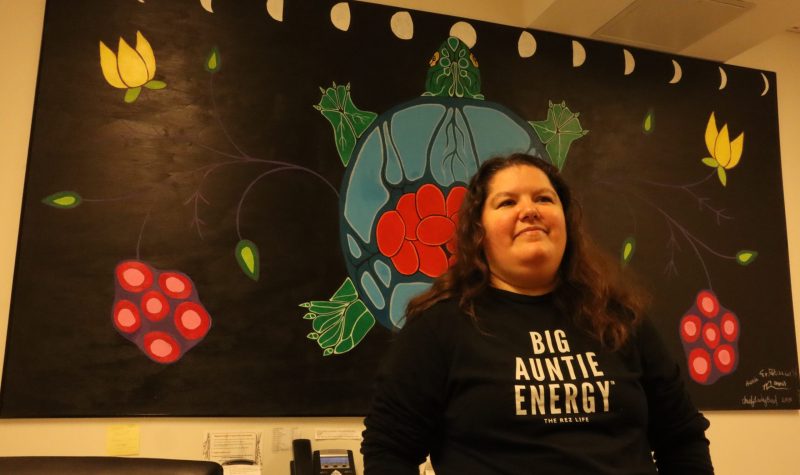The Call Aunties Clinic, an Indigenous led sexual reproductive health service in Toronto that offers a culturally safe healthcare space for all Indigenous people, in April celebrated their third year in operation. The organization was founded as the "Call Auntie COVID-19 Indigenous Pathways Hotline" in April 2020 and has evolved to a full midwifery clinic with harm reduction and postpartum support programs.
Compared to other Indigenous health organizations in Toronto, Call Aunties is young. Being a new organization, they are still growing to accommodate the issues the Toronto Indigenous community faces, according to staff.
"[The community] has been really supportive and really enthusiastic, we definitely are still learning about what it is that we can do to further what we are already doing," says Kyrstsa Williams, Lenape First Nation community birth worker at the Call Auntie Clinic.
Call Aunties is still relatively new so not many people are aware that they exist as a full fledged clinic. Williams says spreading awareness of the program is something they are always discussing.
"In the wake of a three year pandemic, getting the word out and letting people know that we're here is still a priority," says Williams. "You have more options than what you think you do in terms of care."
Being new to the scene gives them flexibility to implement specific care for the many Indigenous groups that call Toronto home. Call Aunties has set up an Indigenous framework that prioritizes clients safety and dignity while providing room for their autonomy around decision making for their health care. It can be difficult due to the variety of different Indigenous peoples and cultures in Toronto.
“Instead of assuming what somebody needs just because they’re identifying in a particular way [we] make sure that there is actually space to say what your needs are,” says Williams. “I can only respond to needs that are expressed. I don’t want to make assumptions about what safety or what care looks like to somebody…I think the space that we have here really allows for that openness and that flexibility.”
For Williams, fostering a space of openness is important to her. She wants a Call Aunties to be a place where her clients can turn to during hard times where they may not have had before.
“What happens after these incidents of violence? What happens when people are dealing with grief and loss and trauma? Who do they turn to? Where are their supports? I think I want to build supports that they didn’t have access to and build that now,” says Williams.
Listen to the CJRU story below:


